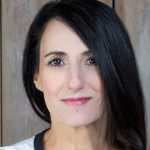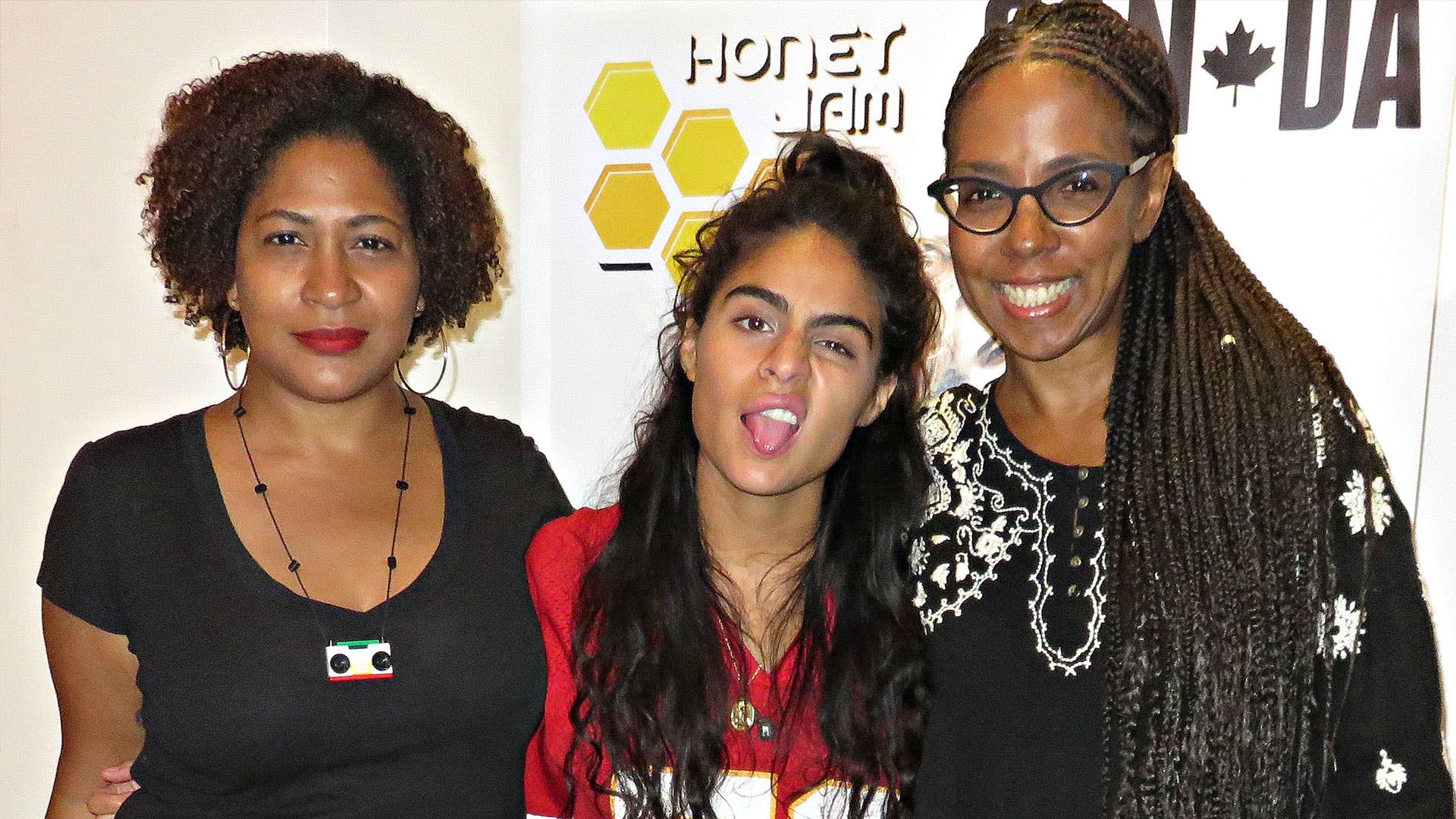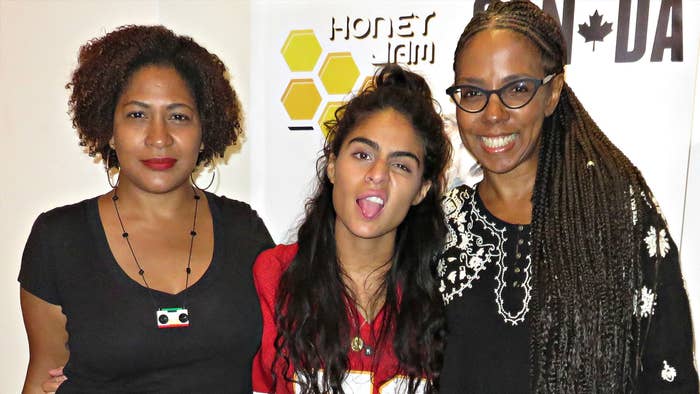
This month, Ebonnie Rowe was looking forward to putting on the 25th annual Honey Jam showcase in Toronto. The go-go-go founder of the Canadian female vocalist search had big plans in the lead-up to the milestone event and the companion opportunities—from workshops to mentorships—she puts together every year for the young artists (ages 14-25), representing every conceivable style from rap to opera, pop to jazz. But now—due to COVID-19 —the judges didn’t even get to pick the top 20 Honey Jammers. “Important!We will not be holding auditions this year as we will be doing additional development work with some of our alumni – Please check back in January 2021 for details for next year’s season,” it says on the Honey Jam web site.
But Rowe's still got some things in the works to celebrate the event's silver anniversary. Among them, a special slot at this weekend's Manifesto Festival, livestreamed from Toronto's Great Hall, featuring Honey Jam alums Jasmine Kiara, Getchnah, I.P. The Poet, and Sagelee Archer. There will also be a 25th anniversary show at Toronto's El Mocambo, to be livestreamed on October 1.
While these major adjustments are disappointing for Rowe, she always rolls with the punches, even though this has been the biggest punch to date, as it has been for us all. For 25 years, she has worked tirelessly year after year to keep the not-for-profit event going, and impress upon sponsors Honey Jam’s importance to help teens and young women looking for a legit break in the Canadian music industry.
Nelly Furtado was actually discovered at Honey Jam in 1997 by The Philosopher Kings frontman Gerald Eaton—she'd go on to sign a record deal with DreamWorks and explode worldwide. Other alumni include Jully Black, Melanie Fiona, Reema Major, Anjulie, Jordan Alexander, SATE, now filmmaker Stella Meghie, and 2019 Polaris Music Prize winner Haviah Mighty. Mentors and speakers have included Janelle Monáe, Estelle, Erykah Badu, Elle Varner, Marsha Ambrosius, Jessie Reyez, Beyonce’s publicist Yvette Noel-Schure, and Black, who rose to become one of the country’s top R&B-pop artists.
Honey Jam grew out of necessity, but not for the reasons one might expect. In the early '90s, Rowe had a mentoring program in Toronto for at-risk Black youth, and the girls would often tell her that boys, influenced by misogynist rap music and videos, would call them “bitch” and “ho.” It infuriated Rowe, who complained to DJX (Adrien King), host of the influential hip hop radio program The Power Move Show at Ryerson radio station CKLN. He invited her not just to come on the show to discuss the issue, but to produce it. Listening to those three hours, back in 1994, was the editor of Mic Check magazine, who got in touch with Rowe to ask her to assemble an all-female edition. The release in May 1995 was celebrated with a party called Honey Jam. Something clicked and Rowe took it upon herself to make it more than a one-off—to make it her singular mission to provide a safe, professional, supportive environment to aspiring female artists. Today, 25 years later, not much has changed.
Complex talked to Rowe about Honey Jam's launch 25 years ago, how Nelly Furtado changed its scope and industry attention—and what, if anything, has really changed for aspiring female artists in Canada.
Congrats on 25 years. Even though there’s no Honey Jam this summer, no one can take that away from you. What made you go to DJX in 1994?
I'm a disciple of Malcolm X and he talks about when you see a problem and you point a finger at someone to blame them for the problem, you should also look in the mirror and ask yourself, ‘What are you doing to be part of the solution?’ So when I complained to DJX about the lyrics and the unintended consequences of how then these men were importing this misogyny and also the words, he said, “Come on the show. I'll give you the whole three hours. You produce it.”
He didn't argue the point, and say, “Oh, they're just lyrics”?
He was shocked at what the experience was for me.
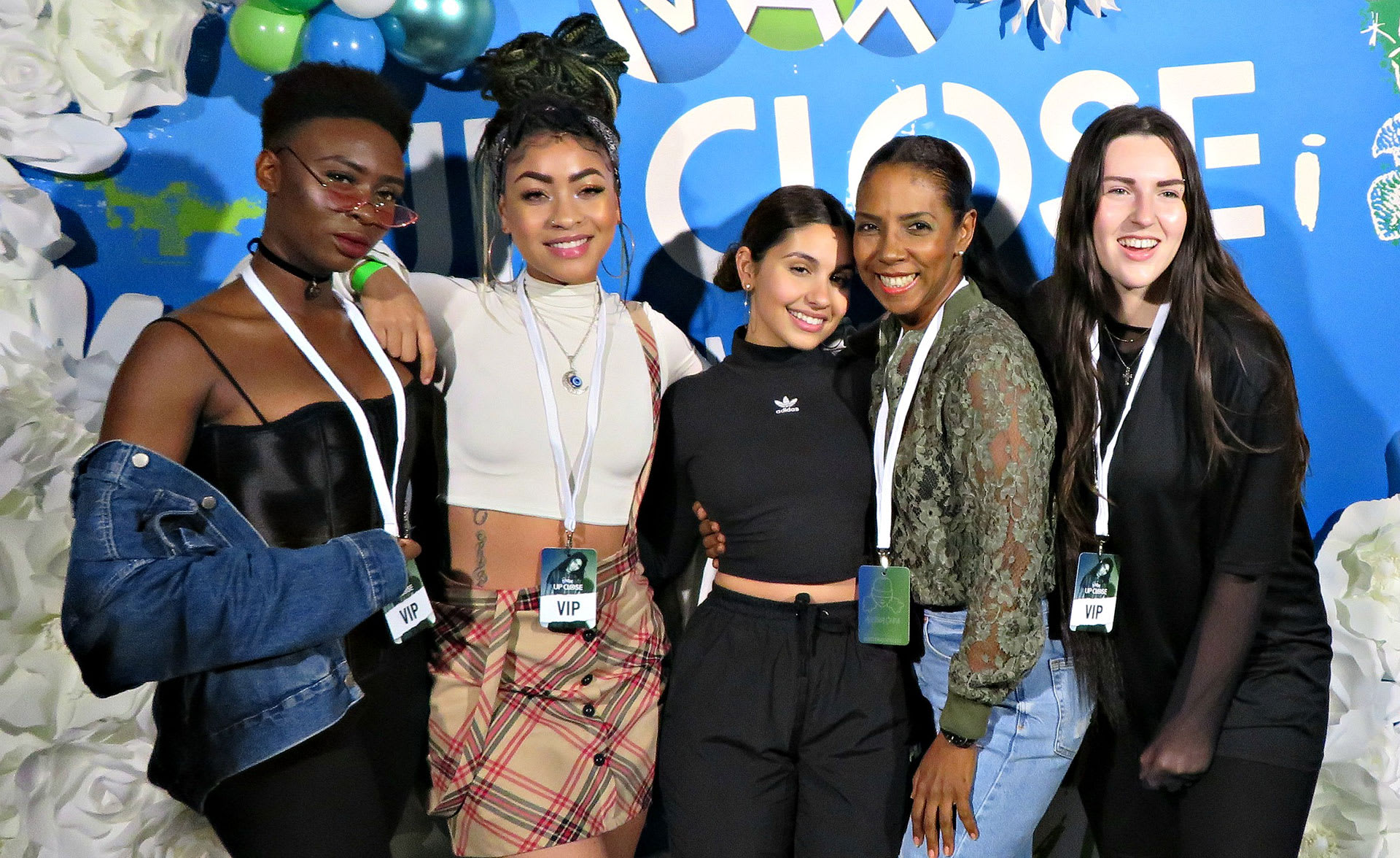
Which artists?
Snoop and Ice Cube. Gansta rap was huge in the in the early '90s—NWA, all of them were around at that time and very popular, talking about raping women, beating women, degrading women to a really amazing beat. Women would be in the club and you’re dancing to it, but you're not even realizing what is being said.
What did you notice about the number of female artists 25 years ago?
When Honey Jam started, it was 99.9 percent hip-hop because it came out of a reaction to how women were portrayed in hip-hop. When we did that night—which was the wrap party for the magazine that was called "Honey Jam"—that was supposed to just be that one night. It was about hip-hop. There weren't female hip-hop artists in Canada other than Michie (Mee), that I can recall. There were no superstars, like, say, a Cardi B or Nicki Minaj, that type of level, but there was Queen Latifa, MC Lyte, and a few others [in the U.S.].
"Even if you think about the States, look at how many male hip-hop artists you could probably name; there's at least 20 that are multimillionaires and that could fill a concert hall and there's only two women."
As many young women that have come through Honey Jam, it’s mindboggling that Michie is still Canada’s biggest female rapper, and she launched her career in the '80s. Forty years and none have broken worldwide, the way Canadian females in other genres have. Now Haviah Mighty is getting attention, but it remains to be seen how big she’ll break.
Haviah is getting there. She is the one currently in Canada that has the most recognition and that’s because the Polaris Music Prize (she won in 2019) gave her the awareness and promotion.
Why do you think that is? You've basically hand-picked and showcased 20 artists every year for 25 years. That’s 500 artists. Not all rap, of course, but still.
In the early years, we had up to 40 artists in one show. The heavy emphasis on hip-hop stopped after Nelly Furtado performed. Not that we were opposed to having different genres and different cultures of women, it's just because of how we started. But then when people saw her, they're like, ‘Oh, white girls can feel part of it, too,’ and then we got all of these different genres. We stopped having that heavy focus on hip-hop from back in '97. It changed, but we've always had hip-hop in the shows. I don't have an answer for that. Even if you think about the States, look at how many male hip-hop artists you could probably name; there's at least 20 that are multimillionaires and that could fill a concert hall and there's only two women.
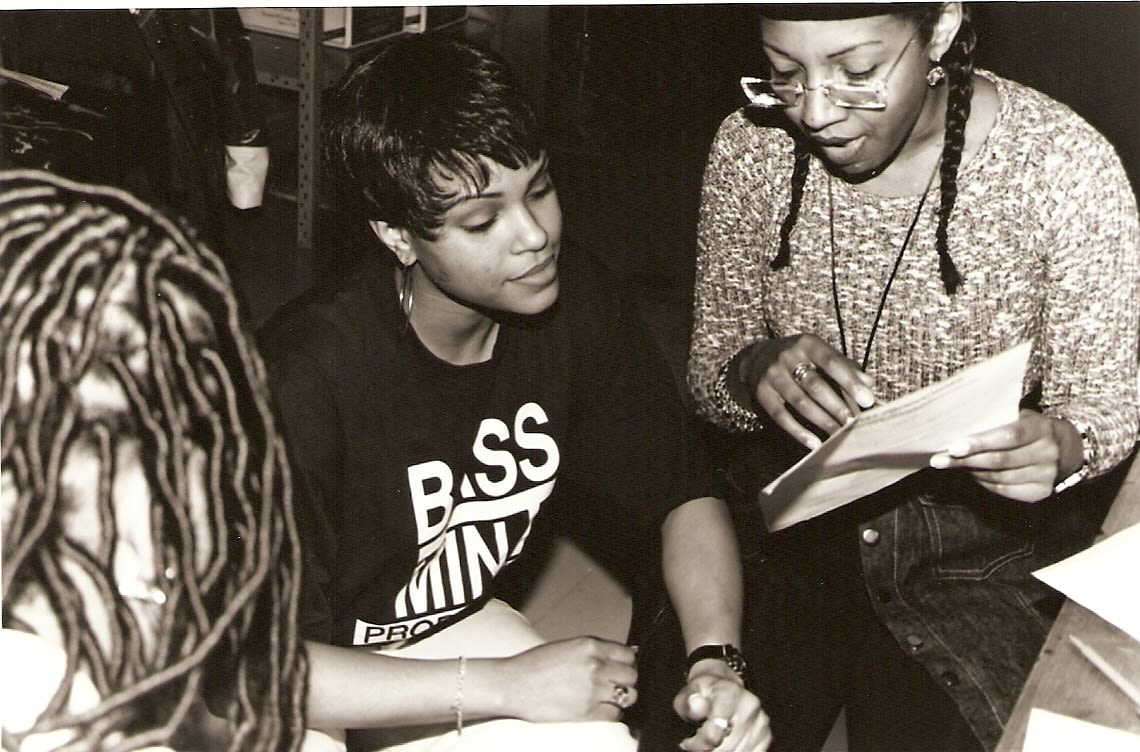
Have you had an easy time getting the music industry out to your showcases?
I would say so. Nelly changed everything. I guess they missed out on her [she signed to DreamWorks in the States]. And so it became almost a required thing for some labels to send someone to things like what we were doing to look for talent.
What made you add the workshops?
We did our very first workshop in 1996 because coming off the stage, we would see men swoop in on the artists with the whole "Baby, let me make you a star" type of vibe. And they were just so green and wide-eyed, I knew that they didn't know who these people were or what to expect, what the protocol should be, and I really wanted to protect them. And so we started the Women in Urban Music seminar. All of the panelists had to be women because I wanted people who would help them because they wanted to help them, and for no ulterior motive, no casting-couch vibe, none of that. Eventually after a couple of years, I felt comfortable having men come and be panelists as well.
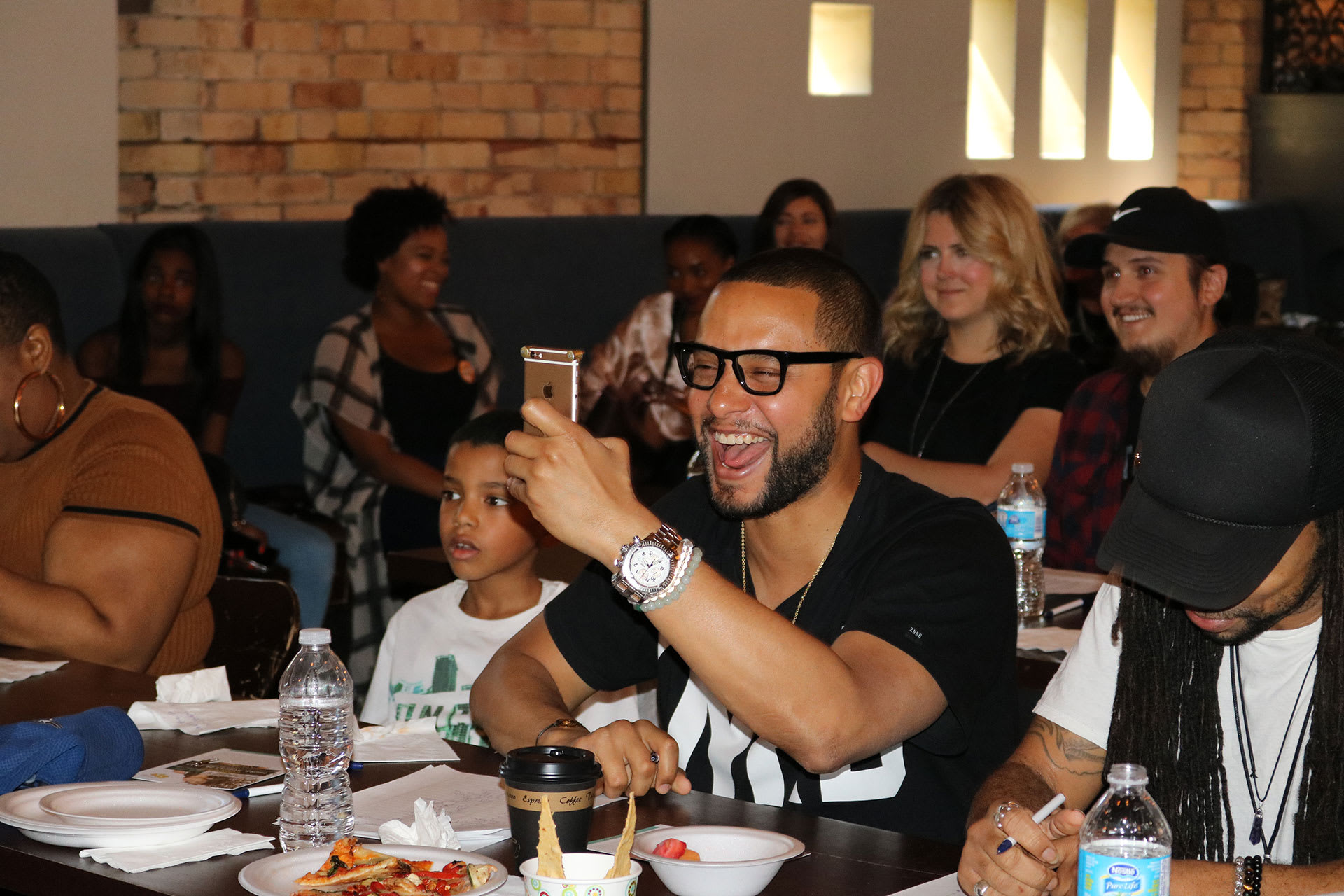
Do you think anything's changed the past couple of years for young women wanting to get in the industry?
I wouldn't think so because they’re still lining up to audition and be a part of Honey Jam. I think more people want to be artists than ever, and more people want to be famous because of YouTube, Tik Tok, Instagram, and other platforms.
Honey Jam gives them opportunities beyond the showcase. What's your ongoing connection with these artists?
We see what they do because we follow them on social media and we promote what they're doing. It’s kind of a sisterhood, a sorority, so you never really leave. Look at Stella Meghie, who was a rapper 20 years ago, and now she's a feature film director being profiled in Variety and tapped to do this Whitney Houston biopic that Clive Davis is involved in. Who would have thought? So we follow what she's doing. And when we see the article in Variety, we post it. When she's got her movie coming out, we’ll tell people.
So you're a proud mom.
I am. I am a proud mama bear. And each year, when we do the event, the launch, the workshops, we still invite some of the alums to participate. They'll come to the show and support other artists. Some might have a single they're promoting and we might have them as a guest to perform at the concert. So it's a forever thing.
